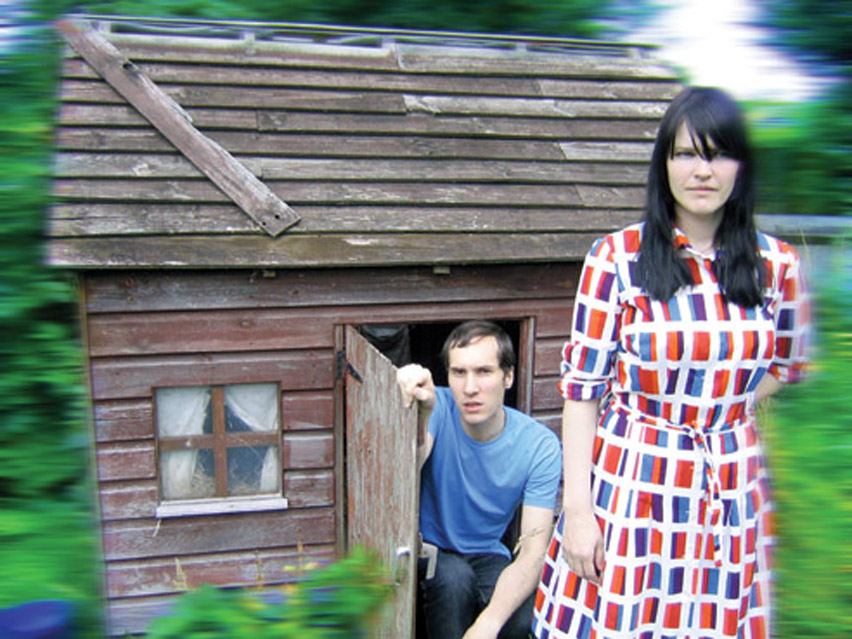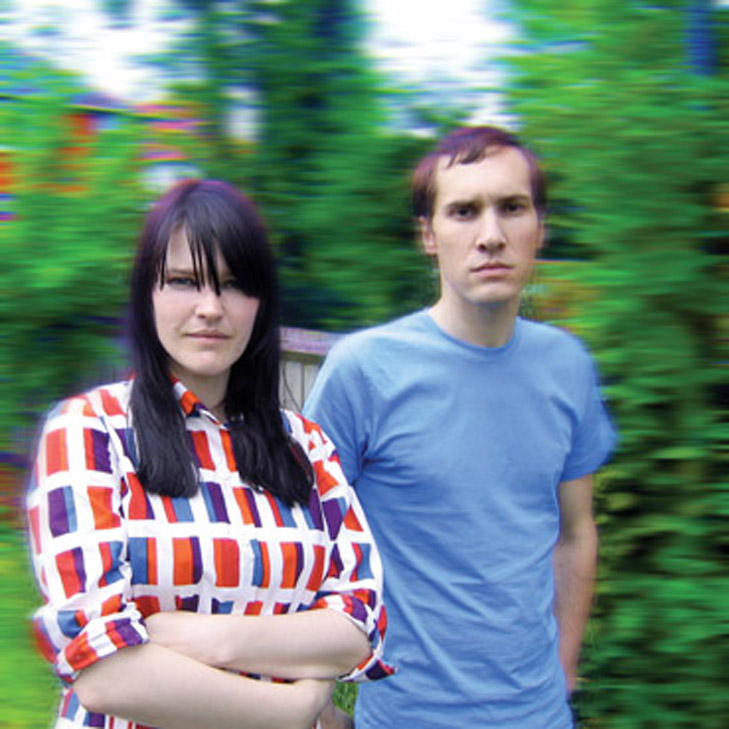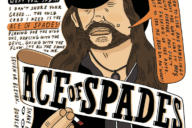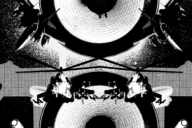BROADCAST: CINEMATIC HIGHS WITH THE KINGS HEATH DUO
We thought we’d share with you this interview from the Fused archive. Trish was A unique voice, an extraordinary talent and a beautiful human being. Rest In Power
The mighty Broadcast are back with a new sound and a new direction. The now two-piece from Kings Heath, Birmingham, begin to scale the uncharted cinematic highs and circumnavigate the sonic depths of their careers. Since the release of the highly acclaimed ‘Ha Ha Sound’ in 2003, James Cargill and Trish Keenan, (Tim Felton has subsequently teamed up with Mike ‘Billy’ Bainbridge from Plone to form Seeland), have been perfecting the reductionist art of less is more. Perhaps the most important recording in Broadcast’s catalogue, ‘Tender Buttons’, sets the agenda for the bands future, with no one to shout at but each other, Jam and Trish lead the way as they embark on a familiar journey with an unknown plastic sound.
Could you describe how your sound has developed since the release of Ha Ha Sound?
Trish: I think it’s the opposite of developed, what is the opposite?
James: Regressed.
Trish: Yes, I think we’ve regressed. (Laughs)
James: I think it’s more focused. Before we really wanted to create quite deep and detailed textures. I still think that was good for that time, it’s what we felt, but since then we’ve decided to focus on a more simpler and consistent sound.
Trish: A less precious approach as well. We definitely re-thought how we use the equipment and where. We’ve always had quite a conventional set-up before, speakers on stands and the mixing desk in between. We just got really bored with it.
So in what ways have you shifted that now?
James: Less of a studio record, more of a simple intuitive sound. I think that when you begin to record music, you go down the routes you are supposed to do it and that’s often a way of blanding out your music.
I think there are a lot of elements that forced us into this sound as well, initially we were going to use drums on all of the tracks, but we worked on that and we couldn’t get it to sound right. There are only two of us now, whereas with the first album there were five people, which could also be the reason for it being more focused.
Across the City, the Birmingham landscape has physically changed, has this effected its music scene?
James: It feels like there is money being chucked at everything, at the moment.
Trish: Except for any decent music.
James: I mean architecturally really.
Trish: Well, something happened. I don’t know what the details of it were but something happened 7 or 8 years ago, and I thought that it would just go from strength to strength. That’s the thing about that Birmingham scene there really wasn’t many Birmingham people involved.
James: It wasn’t really made up of Brummies.
Trish: It’s people who come in and then they just leave. So something happens for just a short while and then it disappears again. I think that if the scene was made up of a majority of Birmingham people, then there would have been something to build on.
James: We’ve been looking for musicians to go on tour with, but we’ve found it really hard. Not that we walk around with a big banner that says we need musicians.
Trish: The words out there.
James: So in the end we’ve got my brother in, and he’s from Bristol. We couldn’t find anyone local to do it.
Do you feel that people are unable to make a full-time commitment as musicians?
It’s a bit like that because obviously we can’t afford to pay loads of money. The other thing may be that people know that we are a bit of a nightmare to work with!
Do you have a really big fan base in the States?
James: It’s not too bad. It’s a bigger market for us. You can’t really say that it’s one thing, there are so many different parts to America, as it changes so much from the east to the west coast.
Trish: We don’t know what they make of English bands or our sound.
James: I don’t think we are anywhere near to conquering America, we’re still only playing to 200-300 capacity audiences.
What’s it like being on the road?
Trish: That’s the good bit.
James: It can be the good bit. This time we are starting in San Francisco and we go up, up and round. For instance, the drive from Vancouver to Minneapolis is at least two days, that’s the one that always stays in my mind because you’re just sat on the bus for all that time. It can do your head in!
Is the album title and the song Tender Buttons influences by Gertrude Stein’s writing?
Trish: Definitely, the title is influenced by a Gertrude Stein poem. I got obsessed with, well really appreciated, the fact that she wasn’t hung up on making sense at all. It didn’t really inspire the writing as such but the technique of automatic writing is used all over the LP. That’s how I generate the lyrics. It’s good to put conditions on automatic writing otherwise it can get a bit too obscure.
Could you describe the process you followed when writing America’s Boy?
Trish: It was just an instrumental piece of music to begin with, I liked it but I wasn’t particularly trying to craft a song. I was looking after my Dad who died during the making of the record. We always had a ritual of doing the Sun crossword and I started to like the language of the cryptic clues. I loved the weird sentencing of the clues and I started to echo them back a little bit. One crossword in particular was very negative towards America (around the time of the scandal of the American troops treatment of Iraqi prisoners). I guess that the crossword writer was expressing this through the coded system of the language.
James: So the crossword was about the abuse of the prisoners?
Trish: It wasn’t about it directly but my interpretation was that it had an anti-American tone. In writing the lyrics, I kind of answered my own versions of the questions, as a spontaneous reaction. It was something that I wrote within a 20-minute session. It wasn’t until I had the four-track on my headphones and I heard that piece of instrumental music, that I made a connection and I just started singing the song. I swear to god, it happened so quickly. Perhaps because I was busting my balls on a track two weeks before, that I couldn’t make work. That classic thing where you trying to knock something into shape and it’s not happening but what is happening internally is you are practicing, and you subconsciously home in on some inherent skills to find a solution.
Gertrude Stein wrote Tender Buttons in 1914 at the outbreak of the First World War, you could say there is a subconscious link between that and your recording post Afghanistan and Iraq.
Trish: I guess but the thing with America’s Boy is that it’s apolitical. I am not trying to make a statement, I am not commenting on America, really it’s an appraisal. Perhaps the wrong time to do an appraisal of America!
James: I think that again came out of the fact that you were doing the crossword with your dad.
Trish: Yes definitely, I stood back from whatever political slant it had on it. It wasn’t about me.
Do you find it easier now that there are just two of you in the band?
(James) Yes, it’s a bit of both really. With the internal tensions, there’s no one to complain to anymore. You just turn to each other.
So you live together, play together and work together. It’s a miracle that you are both alive!
(James) Well, it was tough when there was three of us, and it was still tough when there was four of us. I think to be creative in a band (when you are writing), if you’re not improvising, then it’s best to do it on your own really. To put people under pressure together to come up with something, without just playing your instruments is hard. That’s why I think, if people are going to play together, the best way is to get together and don’t put any restrictions on it either. That’s why improvising is the best place to get to for anyone who’s making music.
Now that Warp have their own Warp Films distribution, would you be interested in directing your own films?
James: We just bought a camera actually!
Trish: But it’s a difficult thing to start getting into at this point. The difficulty with going in as a beginner is that there are a lot of creative pitfalls, the obvious clichéd stuff that you have to develop out of. If you are going to make film, there is a huge difference between what you understand as a listener or viewer and then what you understand of yourself as a creator/maker. I think there would be too much of a gulf.
James: But through collaboration, yes!
Trish: It’s definitely something that we are going to get into but not immediately.
Words and Pictures by David Osbaldestin
First published in Fused Magazine issue 24








